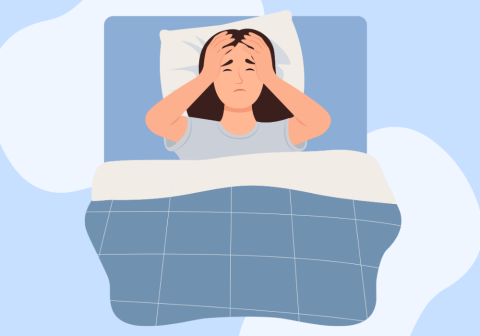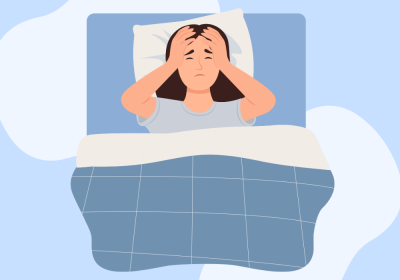
Generalized Anxiety Disorder (GAD)
Understanding GAD
Generalized Anxiety Disorder (GAD) is characterized by persistent and excessive worry about a number of different things. People with GAD may anticipate disaster and may be overly concerned about money, health, family, work, or other issues. Individuals with GAD find it difficult to control their worry. They may worry more than seems warranted about actual events or may expect the worst even when there is no apparent reason for concern.
GAD is diagnosed when a person finds it difficult to control worry on more days than not for at least six months and has three or more symptoms. This differentiates GAD from worry that may be specific to a set stressor or for a more limited period of time.
GAD affects 6.8 million adults, or 3.1% of the U.S. population, in any given year. Women are twice as likely to be affected. The disorder comes on gradually and can begin across the life cycle, though the risk is highest between childhood and middle age. Although the exact cause of GAD is unknown, there is evidence that biological factors, family background, and life experiences, particularly stressful ones, play a role.
Sometimes just the thought of getting through the day produces anxiety. People with GAD don’t know how to stop the worry cycle and feel it is beyond their control, even though they usually realize that their anxiety is more intense than the situation warrants. All anxiety disorders may relate to a difficulty tolerating uncertainty and therefore many people with GAD try to plan or control situations. Many people believe worry prevents bad things from happening so they view it is risky to give up worry. At times, people can struggle with physical symptoms such as stomachaches and headaches.
When their anxiety level is mild to moderate or with treatment, people with GAD can function socially, have full and meaningful lives, and be gainfully employed. Many with GAD may avoid situations because they have the disorder or they may not take advantage of opportunities due to their worry (social situations, travel, promotions, etc). Some people can have difficulty carrying out the simplest daily activities when their anxiety is severe. While less common, some individuals with anxiety disorders may experience anhedonia, especially if they also have a comorbid depressive disorder. Learn more about symptoms for GAD.
To learn more in-depth about Generalized Anxiety Disorder and treatments, check out ADAA's Patient Guide to Mood and Anxiety Disorders.
ADAA Resources
- What is Anxiety? Video
- Generalized Anxiety Disorder (GAD) Brochure
- ADAA Board Statement on Trauma - 2023
Webinars:
- Supporting Your Child with Anxiety and/or OCD - Q&A
- Book Conversations - 3 Part Series on Overcoming Anxiety
- Calming the Inner-Chatter of Your Mind
- Thriving with Anxiety and Depression
- What Are Intrusive Thoughts and How Can You Deal with Them?
- Outsmart Your Anxious Brain
- The Mindful Way Through Anxiety
- Get Unstuck from Depression and Anxiety with Acceptance and Commitment Therapy
- Building the Confidence to Manage Anxiety, ADHD, and Executive Function
Blogs:
- Hidden Links: The Common Threads of Mental Health Disorders
- Is Your Child Struggling with Anxiety or OCD? Key Ingredients to Help Your Child Succeed
- 5 Tips for How to Know If an Anxiety Therapist Is the Right Fit for You
- Learning to Live Well with Worry
- Why Anxiety Should Not Be Feared
- SSRIs and Benzodiazepines for General Anxiety Disorders (GAD)
Articles:
- ADHD & Anxiety: Two Common Coexisting Disorders, Health Well Foundation, Roberto Olivardia, PhD


















